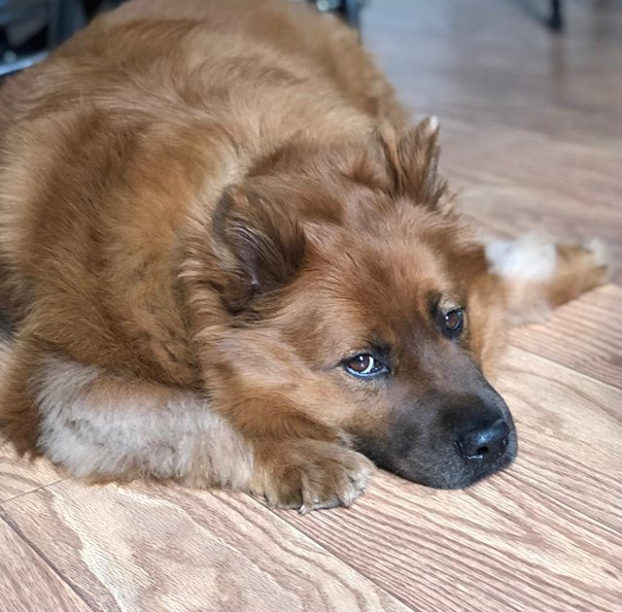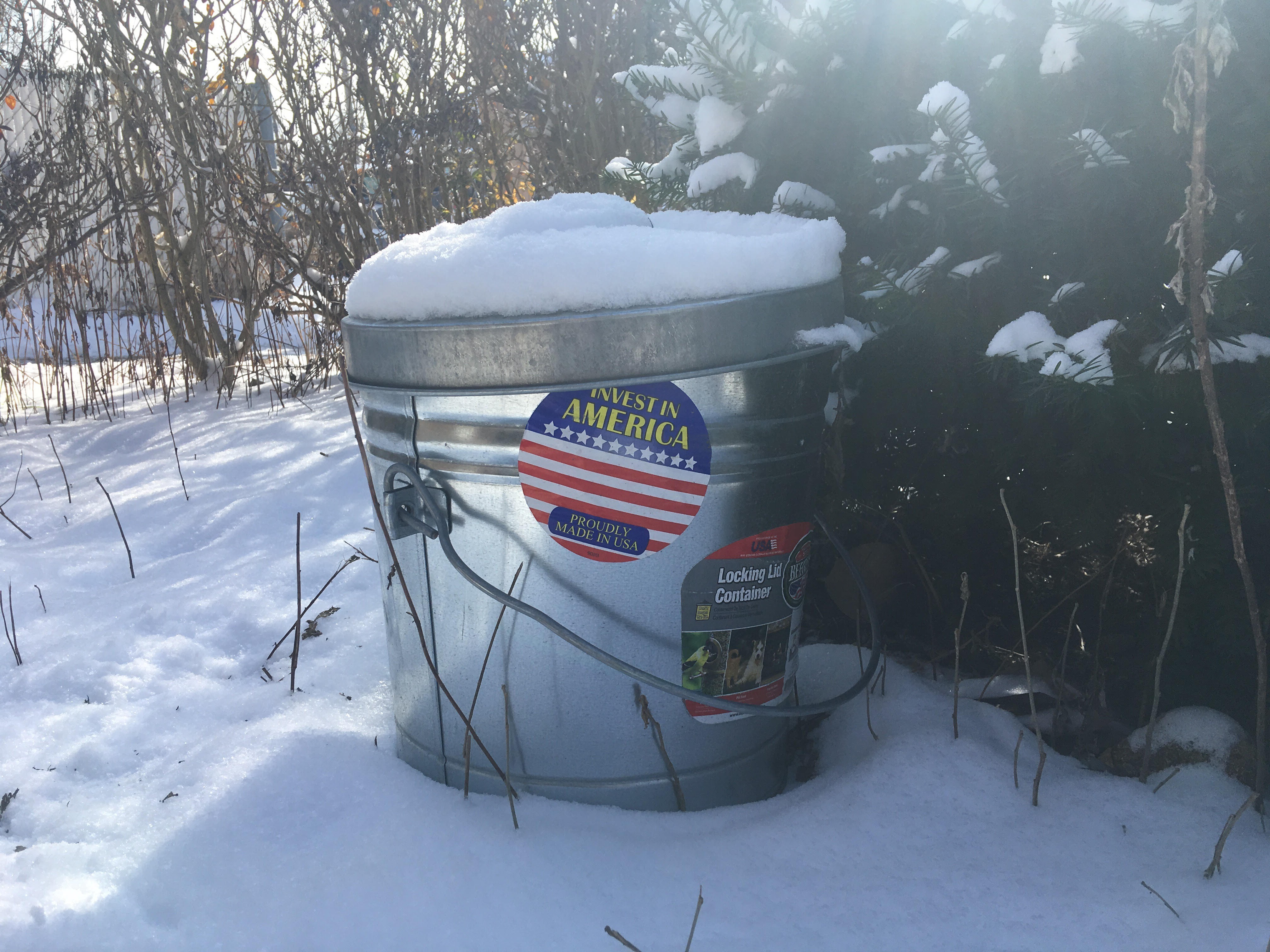November 24, 2018
Pittsburgh, Pennsylvania
Walking the dog on a wet 36-degree morning—cold but not that cold—I thought about how the city of Pittsburgh rarely deals in extremes. Consistently, it offers grim gray moisture. My neighbors across the street, inveterate yinzers in black and yellow hoodies, bickered with each other from across their balconies over whether winter had come early or late this year. I had only survived one Pittsburgh winter thus far, a bland run from December to March during which the air had hovered indecisively around freezing until the snow became a mélange of table salt and cold pigeon shit.
But today wasn’t too bad out, no need to salt the cement, just a light icy crunch to the grass as my dog did his business in the same spot as always. I bent down to pick up his shit and headed for the trash can across the street to throw it away, the one I always used at the base of a broad cement staircase leading up to an old townhouse. On the can’s lid, I found a sheet of paper clumsily laminated over with clear packing tape: “THIS IS A PRIVATE TRASH CAN! WE DO NOT WANT YOUR ANIMAL WASTE!” written in bright blue sharpie.
It was clearly a personal attack. I cracked open the lid and dropped it in anyway.
Back home I wiped the dog’s feet dry and unloaded my indignation on my roommate Ash. He was sitting on the couch playing Stardew Valley, nonplussed. “I don’t know,” he said, “it does seem awfully rude to just go dumping dog shit up and down the street.” Deflated, I mumbled something about how, if it weren’t vaguely illegal, I’d leave it where it falls. I thought about those bus ads—the ones that tell me puppy feces poisons aquifers—and how they seemed too outwardly manipulative to be true.
The dog laid on the floor and kicked his legs out behind him in an excellent sploot, uninterested in the strife his bowels had caused.

I tried to let it go, tried to do some dishes, grade some papers, answer some emails. I tweeted at a writer I admired and she retweeted me—a surge of dopamine was followed by withering shame over being so effusive online, in public. I dropped everything and took the bus up to a little crepe place in Shadyside to do some reading. On the way back, the bus passed by the Tree of Life Synagogue on the corner of Wilkins and Shady, less than a mile from home. Almost all the passengers got up and peered out the windows facing the synagogue, and the bus tipped to one side as they took in the line of flowers and stuffed bears protected by a few blue awnings outside. I couldn’t remember how long it had been since the shooting, so I googled it on my phone (29 days) but was astonished that the shooting had a Wikipedia page with 168 references.
When I got back, Ash was still on the couch playing his game. It was winter in Stardew Valley and I stood watching the TV for a minute as the snow fell in a beautifully predictable cross hatch. Ash was fishing in the game, casting out off a pier in the hopes of catching some rare specimen only available on winter nights, but he was mostly hauling in seaweed, shattered CD-Rs, and hunks of garbage.
I broke the silence: “But what even is a ‘Private Trash Can?’”
Ash scoffed. “This is why I’ve been saying we should keep our trash can out front in the garden. For easier dog-shit-disposal.”
“No.” I refused partly because I didn’t want to drag our trash through the living room, but also because we’d be conceding to the Private Trash Can owners.
“Besides,” I said, “the racoons have been ruthless lately. Do you really want our garbage spilling out onto the lawn for the world to see?”
Ash reminded me that responding to a problem with another problem is not a solution.
“Fine,” I said, “let’s go to Lowe’s and buy a lid for the trash can that actually fits.” He agreed on the condition that I drop him off at work afterward.
In the car, Ash put on a podcast where a bunch of writers for some gaming publication discussed the best games of the year. Ash laughed as they ribbed each other and asked me what my Game of the Year would be. I confessed that I hadn’t really played enough to have one; I wondered how I’d come to cede so much of life to things that were abjectly unfun.
We took the bridge over the upper bend in the Monongahela River and Homestead spilled out in front of us in that tired, shimmering way most post-industrial cities do. Inside the Lowe’s, I found the trash can aisle and started fumbling through the lids stored on the shelf above the bins themselves. There were at least nine varieties—black, brown, blue, some steel, some a thick bumpy plastic—and I couldn’t discern which ones corresponded to which price tags or if it was even possible to buy a lid without the can. Ash was getting impatient and had refused to help pay once he saw that the cheapest one was still $28.99; he only worked part-time and a clerical error at work meant that a third of his paycheck was currently being sent to the federal government.
Then I saw a 6-gallon pail, a stout little thing made of galvanized steel with a garish, round sticker in the style of the US flag plastered on its side: “INVEST IN AMERICA. PROUDLY MADE IN USA.” I was smitten; it was perfect for storing animal waste unwanted by private trash can owners. I liked how shameless it was.
I dropped Ash off outside the BYOB Escape Room where he works, the one with the axe throwing business upstairs, and I crossed back over the river headed home. I parked the car in the driveway and grabbed the pail from the back seat. I set down our new dog shit pail, its red-white-and-blue facing out toward the street. Our own Private Trash Can.





